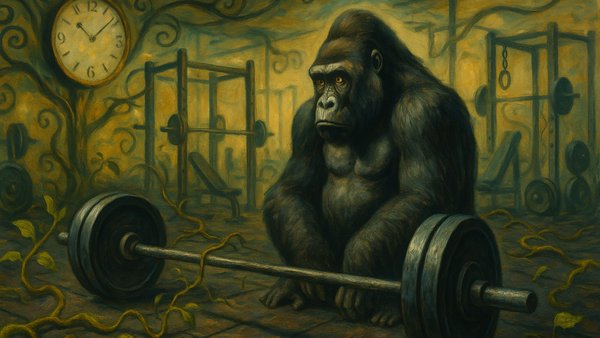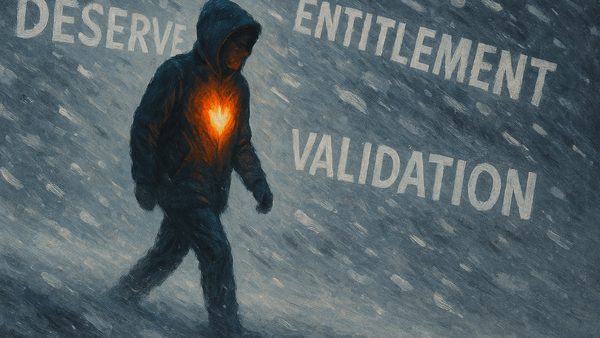How to Stop Waiting and Start Living
A minute waited is a minute wasted. Learn how to change your perception of time and dramatically increase your level of productivity, mental health and wellbeing.

Everybody constantly waits for something. You go on a date and wait for the other to arrive. You sit on the train and wait for it to arrive. You work a corporate job and wait for the promotion to arrive. You wait for your new phone to arrive, you wait for the weekend to arrive, you wait for the holiday to arrive, you wait for love to arrive. Your life consists of an endless sequence of waiting times.
Stop waiting!
I never wait. My date is late? I read a book, appreciate the alone time, chat up other people, go through my todo list and complete some tasks, sort my notes, observe people, write my diary, jot down ideas and thoughts or brainstorm a topic, go through my read later list of articles, or simply enjoy the sensation of the wind on my skin or the sound of the birds singing, aka being alive. Often I even have my laptop in my backpack so I can get some proper work done. I don’t wait.
Sometimes I am late to meet another person. “I’ve been waiting for 15 minutes.” Well, why did you wait? Why did you not make use of the time?
Do I imply you should cultivate being late? Does that mean you should encourage others to be late? No. I simply suggest making proper use of your time instead of waiting for it to pass. Although it is commonly interpreted as an indicator of one’s priorities, being late is usually just a reflection of their disability to manage time properly. Therefore, it is rooted mainly in one of the following:
- You do not make an accurate estimation of the length of the required tasks and their transitions within the given schedule.
- You add further tasks to the schedule after your estimation and commitment.
- You procrastinate or avoid the schedule after your estimation and commitment.
- You have chosen to perceive commitments as low priority in general.
- You have chosen to assign a low priority to the specific commitment.
Either way, being late is commonly perceived as an expression of incompetence or lack of respect or appreciation. However you perceive it, you should not enslave yourself and bind your time to the other person’s choices. If you find the behavior of the other person intolerable, you need to draw consequences according to your own boundaries. The only thing you should not do is wait.
Waiting in Personal Environments
Your parcel arrives late; who cares? The flight is delayed; who cares? Your food takes an hour until it’s served; who cares? Yes, these instances might have implications on your personal or professional schedule, from mild to cataclysmic. But it is your decision how you act in such situations. Use your time. Stop waiting in response to external factors. Waiting is the reflection of the mindset of a consumer. Waiting means you’re projecting your needs on an external factor like a person or an event. The object you’re waiting for might never arrive or come in the precise form you expect or desire it. It is not within your control.
Waiting in Professional Environments
This suggestion on how to approach waiting time does not just apply to any personal environment but professional environments as well. If your colleague, client, or service provider is late for a business meeting, such delay might impact the overall performance of the whole business endeavor. Again, these instances might have severe implications on your schedule. But it is up to you to maximize the use of your own time. You should not let such situations force you to wait. They require business solutions like a change of processes, workloads, or staffing. Stop waiting! Go through your calendar or to-do list for the day, answer emails and text messages, take the quick calls, go through your reading list, or do some physical exercises like stretching or moving.
How to Stop Waiting
First, cessation of waiting requires a shift of your mindset in terms of who is responsible for your own time and its management. Time is your most precious asset, far exceeding money or any other material resource. That is why improper use of time evokes strong emotions such as anger. Ask yourself the question:
Who is responsible for your time?
Reflect on this question for a moment. It is vital to come to the conclusion and formulate the answer yourself.
You are responsible for choosing how to make use of your precious time. You alone. You’re stuck in the traffic jam for two hours, summoning the darkest of human phantasies about murder and destruction, leaving you infuriated for the whole day? Admit that such behavior is quite a poor and immature choice. Who is responsible for the perceived waste of time by waiting? The person involved in the accident ahead on the blocked road? Maybe the driver got distracted by a vomiting child, maybe the brakes broke, or maybe he received news about the death of his mother. Isn’t it you who is responsible? The very person who chose to take the car and that specific road at that specific time.
Why don’t you use the time listening to an audiobook? Why are you not having a meaningful conversation with your spouse sitting in the passenger seat? Why are you not practicing math tables with your son in the back seat? Why are you not simply enjoying the ride in that expensive car you’ve been working your ass off for years?
Second, after claiming and accepting responsibility for your time, you erase the term “waiting” from your personal dictionary and replace it with “wasted”. Admit that you were wasting your own time and make the conscious decision to stop calling the act of wasting “waiting”.
Third, change your choices about the use of your time. Start to make use of the time frames you formerly waited for them to pass—aka wasted. Start doing things that are purposeful for you. I already gave a bunch of examples throughout this essay. The key here is to curate your environment to make the choice as easy as possible.
- If you read, take your current book wherever you go. Get a tablet or eReader. Download books, audiobooks, and podcasts to your phone. Can’t read because you’re driving? Have your passenger read the book aloud, then discuss its content.
- If music is important to you, take your headphones, download music to your phone, or put CDs in your car.
- If you work from a computer, take your laptop or tablet, get a nice cover or protector for your device, and have it within close reach.
- Have your organizational means close at hand. Phones, calendars, todo lists, schedulers, email boxes, messengers, customer and staff management systems, notebooks
- If you like to learn and play, take a set of cards, practice whistling or the Vulcan greeting, or study another language or your surrounding plants or animals.
- Learn and prepare some physical exercises that serve your body. Stretching, massaging, meditating, breathing, tension releasing, and the like.
- Enjoy being alive by simply experiencing the world or practice happiness as proposed in Find And Flip Your Switch of Happiness.
Stop wasting your time. Make use of it.
Did you enjoy this article? Please consider contributing to this publication’s financial freedom.
Flows straight into content, not coffee.




